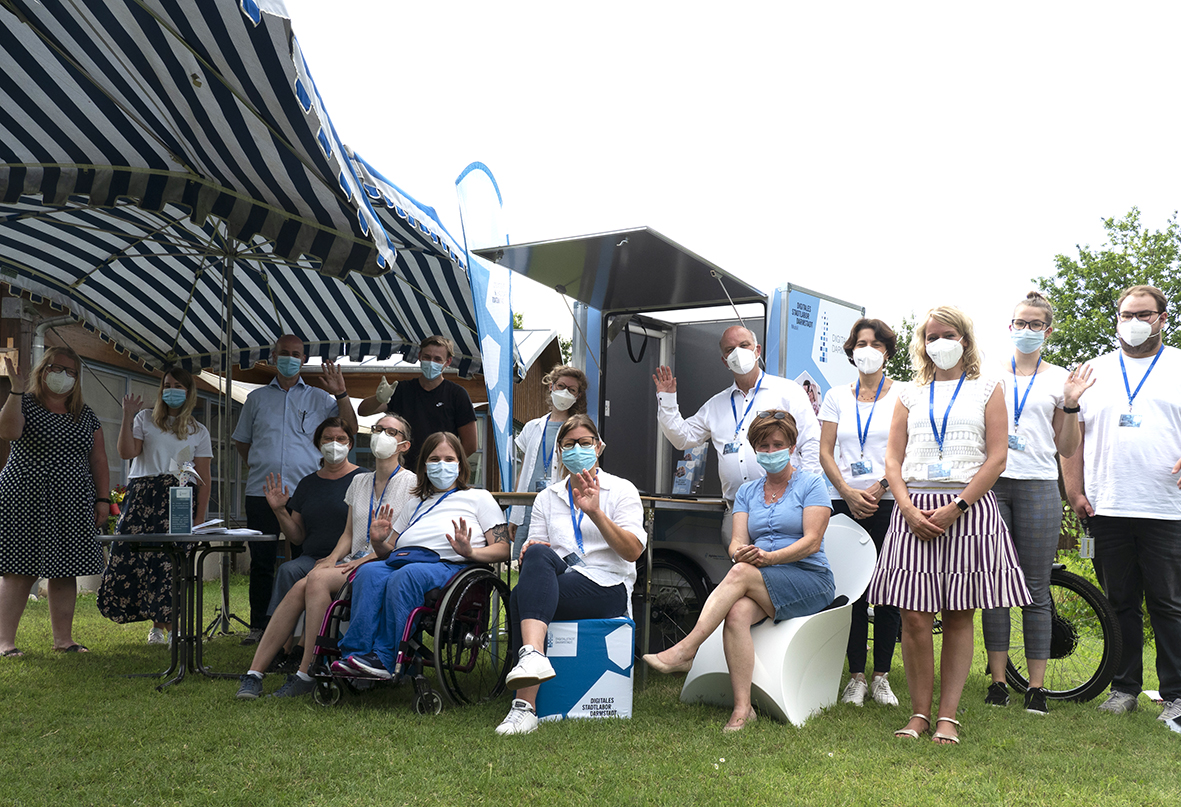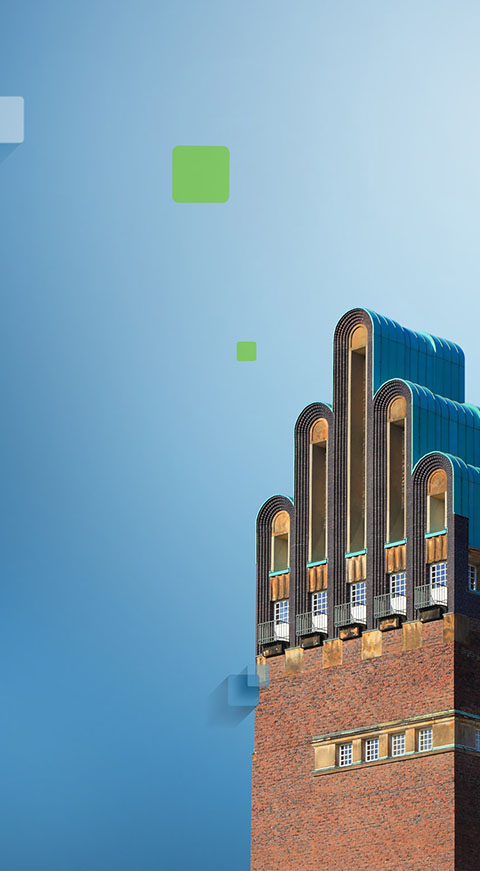
It is omnipresent and yet sometimes goes completely unnoticed. Or it hasn’t even come to mind yet: digitalisation. Science City Darmstadt has been home to it for some time now, as Darmstadt is the flagship digital city model of ‘Smart City made in Germany[1]’. But even in one of the most digitally savvy cities in Hesse, there are people who have had few or no touch points with digitalisation at all. That is about to change. The creators of Smart City Laboratory Darmstadt, the latest project of Smart City Darmstadt, have set out – on electric cargo bike – to report to the local people on digitalisation in a very personal way and with a keen sense of the target group. The first presentation took place yesterday at the Darmstädter Werkstätten und Wohneinrichtungen (EDW), an institution for people with disabilities. Darmstadt’s Lord Mayor Jochen Partsch and Social Affairs Director Barbara Akdeniz welcome the commitment of Smart City Darmstadt and thank the stakeholders of the Smart City Laboratory.
‘The Darmstadt Smart City Laboratory has the task of making the difficult topic of digitalisation come to life. For this reason, the Smart City, as the initiator of the City Laboratory, has already offered many online events in the past year, which are now also entering the analogue world with the mobile version of the City Laboratory. We do not want to and must not leave digitalisation in the digital space,’ explains Lord Mayor and Head of Digital Affairs Jochen Partsch. Barbara Akdeniz adds: ‘It is important for us to involve all the people of Darmstadt in this issue. After all, digitalisation must not be difficult or incomprehensible, as it is currently the biggest transformation of our society, and for us that means embracing the digital world for everyone.’
And that’s exactly what the EDW residents did – along with their carers and other EDW employees who listened to the Mobile City Laboratory team’s presentations. They were amazed when the project group playfully showed how digital assistants can be used in the everyday lives of people with disabilities and what help apps on smartphones and tablets can provide. The fact that the WWW search not only works by entering a question into an internet browser, but that Alexa, Siri and Co are also able to answer the questions, fascinated the EDW audience in particular. Simone Schlosser, managing director of Smart City Darmstadt: ‘The Smart City Laboratory is a real collaboration project in which many different players from Darmstadt’s institutions participate and volunteer. They, like us, are keen to communicate digitalisation in a low-threshold and comprehensible way – to all people. After many weeks and months of exclusively digital communication, we now finally have an analogue instrument again to position our topic with the Mobile City Laboratory and are delighted that EDW wants to book our offer again.’
The Smart City Laboratory is financially supported by the state of Hesse. Hessian Minister for Digital Strategy and Development Prof. Kristina Sinemus: : ‘As a state government, our residents are central to us when it comes to digitalisation. The benefits of digitalisation must be clearly visible and bring added value. We have to and want to involve everyone in this, from schoolchildren and professionals to senior citizens. The City Laboratory is a great example of digital participation in practice. This digital participation and the involvement of residents is also something I care about very much!’
[1] https://www.smart-city-dialog.de/wp-content/uploads/2020/10/BMI-Bericht-Modellprojekte-2020.pdf

